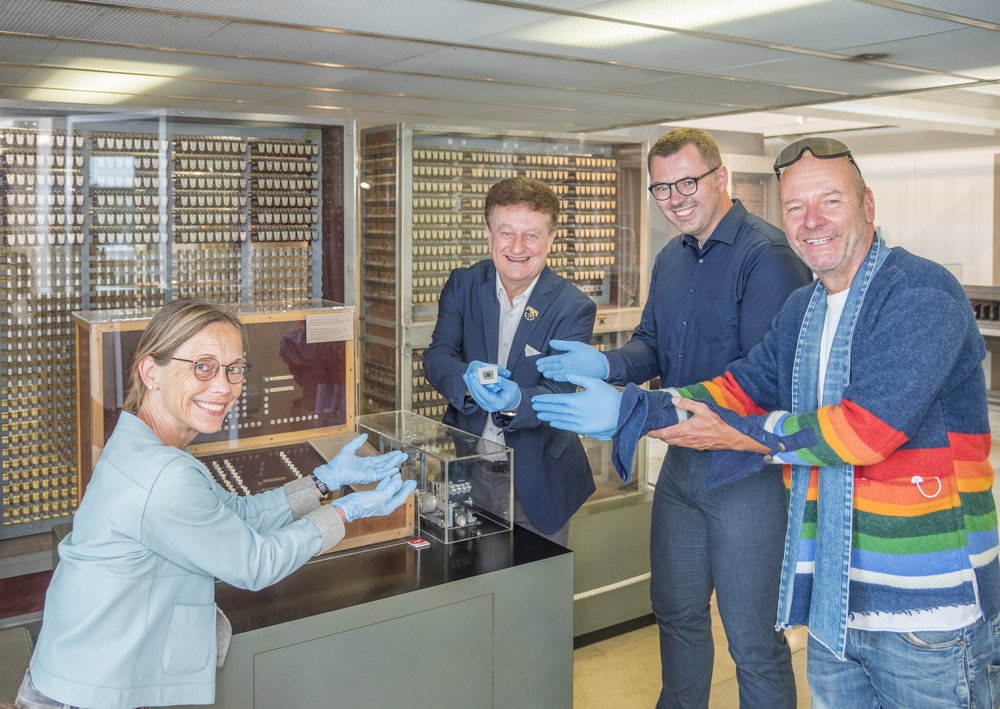In 2019, our Quantum AI team achieved a beyond-classical computation by outperforming the world’s fastest classical computer. Today, a quantum processor from the Sycamore generation that accomplished this important computing milestone will be donated to the Deutsches Museum of Masterpieces of Science and Technology in Munich, Germany.
The Deutsches Museum has one of the largest collections of science and technology artifacts in the world. This means that the Sycamore will share the same exhibition space as some of the world’s most important technological achievements: like the roundest object in the world – a silicon sphere that gives the kilogram a new definition;
the Z3, one of the earliest computers; the Wright Flyer, considered the first serial motor plane; and automotive history from the first diesel engine to the
Waymo Firefly. The museum has a long history of preserving artifacts that mark the start of new eras in science and technology, which is why we’re honored to have the Sycamore processor among these exhibits. The beyond-classical experiment ushered in a new era for exploring near-term quantum algorithms that could have tangible benefits to society, for example—design more efficient batteries, create fertilizer using less energy, and figure out what molecules might make effective medicines.
 Our new quantum chip demonstrates error correction and performance that paves the way to a useful, large-scale quantum computer.
Our new quantum chip demonstrates error correction and performance that paves the way to a useful, large-scale quantum computer.
 Our new quantum chip demonstrates error correction and performance that paves the way to a useful, large-scale quantum computer.
Our new quantum chip demonstrates error correction and performance that paves the way to a useful, large-scale quantum computer.
